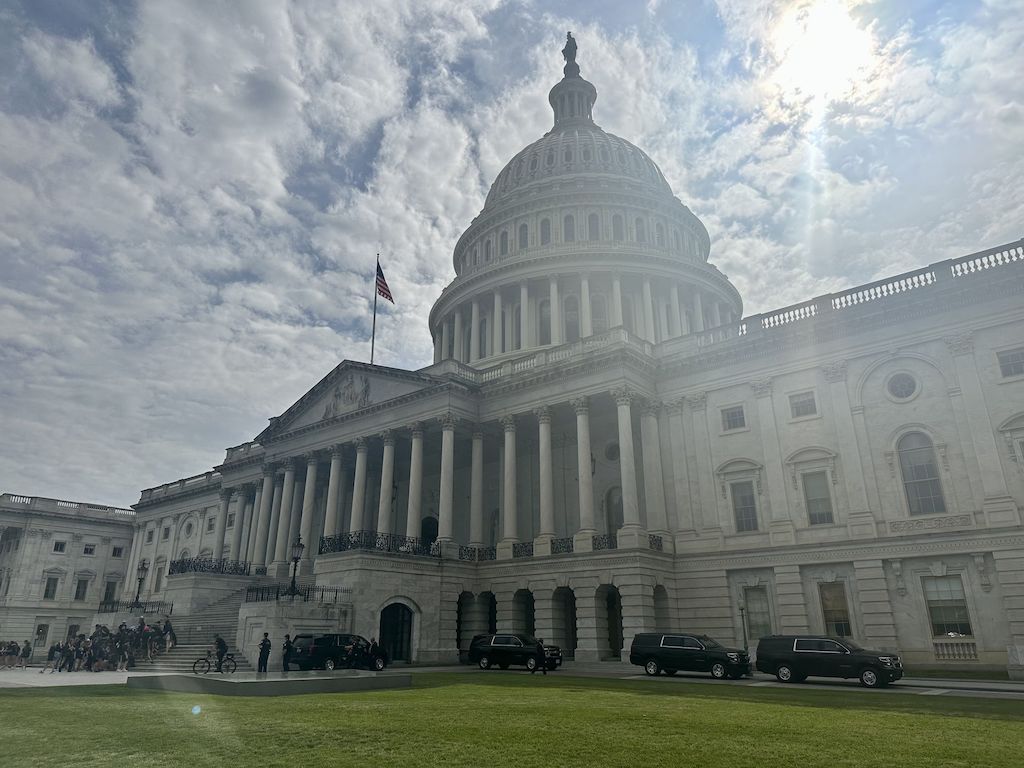WASHINGTON – Statehood activists are once again pushing Congress to set up a vote for Puerto Ricans to pick a new status for the territory.
Puerto Ricans are U.S citizens, abide by the Constitution and are subject to federal laws. However, the over three million people who live on the island have no voting representation in Congress nor a voice in the presidential election.
One bill could change Puerto Rico’s status forever – if it can get through the divided Congress.
The Puerto Rico Status Act would set up a binding plebiscite, or referendum, for Puerto Rican voters to choose among statehood, independence or “sovereignty in free association with the United States.” The result of this election, which would be held in November 2025, would trigger the federal government to act according to the election result.
The legislation is sponsored by Sen. Martin Heinrich, D–New Mexico, who said the legislation is experiencing “record-breaking” support in the Senate.
“This is about equality,” Heinrich said during an April 30 news conference. “This is about American citizens being treated with the same level of rights and dignity no matter where they live.”
The Puerto Rican territorial government has hosted six non-binding plebiscites since the turn of the 20th century. In the three most recent plebiscites – in 2020, 2017 and 2012 – a majority voted for statehood. Over 52% of voters chose statehood in 2020.
Independence has had an unpopular track record in past plebiscites, never attaining more than 5.5% of the vote.
However, for a change in territorial status, Congress, which has the power to grant statehood, needs to step in.
The Puerto Rico Status Act was previously approved by the then-Democratic controlled House in December 2022 but was never put on the floor in the then-Republican controlled Senate. The bill passed the House with the support of 16 Republicans and 217 Democrats.
With party control now swapped, the Senate is the focus of proponents of the legislation. Senate Majority Leader Chuck Schumer, D–NY, is among the 25 senators co-sponsoring the legislation.
Another bill, by the same name, aims to set up a similar plebiscite but adds an option for Puerto Rico to remain as a commonwealth. The bill is sponsored by Sen. Roger Wicker, R–Mississippi, and has no co-sponsors.
“Many Puerto Ricans prefer to maintain their current status and want the freedom to decide on their own terms,” Wicker said in a Sept. 28 statement.
However, George Laws Garcia, the executive director for the Puerto Rico Statehood Council, said keeping the territory’s current status isn’t an option for many Puerto Ricans who struggle with limited federal assistance from programs like Medicaid and the Supplemental Nutrition Assistance Program.
As a result of these disparities, he said, underpaid healthcare workers are moving to the U.S. mainland, the local economy suffers from a lack of stimulus funds, and the island experiences higher child poverty and food insecurity.
Puerto Rican Gov. Pedro Pierluisi agrees that island residents are leaving because of the lack of federal resources available to the commonwealth’s residents.
“It’s untenable. In their hearts they would rather stay in Puerto Rico. We cannot blame them,” Pierluisi said during the April 30 news conference.
The lack of funding, Laws Garcia said, is a direct result of Puerto Rico’s lack of representation in the federal government.
In the House, the territory has a resident commissioner – Jenniffer González-Colón – who can serve and vote in committees, speak on the House floor and sponsor legislation. But she cannot vote on the floor.
Other than González-Colón, Puerto Rico has no direct representation in Congress outside of shadow senators and delegates who cannot vote in committees or in floor votes.
If Puerto Rico separated from the United States, Laws Garcia said, a mass exodus to the mainland would occur, with families wanting the protections that come with being U.S. citizens.
Current humanitarian problems on the island would be exacerbated and many families would be separated if the territory was granted independence, he said.
Permanent departures from the island increased after hurricanes and other natural disasters hit the island. The population decreased by almost 12% from 2010 to 2020, according to the United States Census Bureau.
Laws Garcia moved from his home of Puerto Rico when he was 18, something he said he has found both challenging and sad. He said he had learned about the injustices his island faced as a territory and wanted to help solve the disparities by moving the territory to statehood.
“Until we resolve that issue, we won’t ever be able to meet our full potential,” Laws Garcia told Capital News Service.
The United States has controlled Puerto Rico since the Spanish-American War ended in 1898.
Since Puerto Rico’s admittance as a territory, five states have been admitted to the union. Hawaii and Alaska were both admitted as states in 1959 after residents voted to join the Union, similar to the proposal laid out in Heinrich’s legislation.
The other U.S. territories – American Samoa, Guam, the Northern Mariana Islands and the U.S. Virgin Islands – have delegates to Congress but not full voting rights.
With a divided Congress, Laws Garcia said it’s unlikely that the Heinrich bill will move forward. However, this Congress is about creating the conditions for future approval, he said.
Sen. Joe Manchin, D–West Virginia, told El Nuevo Dia, the territory’s largest newspaper, that a hearing on the Puerto Rico Status Act will be held “as soon as possible,” which Laws Garcia said could be the first hearing in the Senate in over a decade.
“Congress is holding United States territories on behalf of the American public,” Laws Garcia said. “Every single American stateside has a stake in this issue, no matter how remote the territories may feel.”

